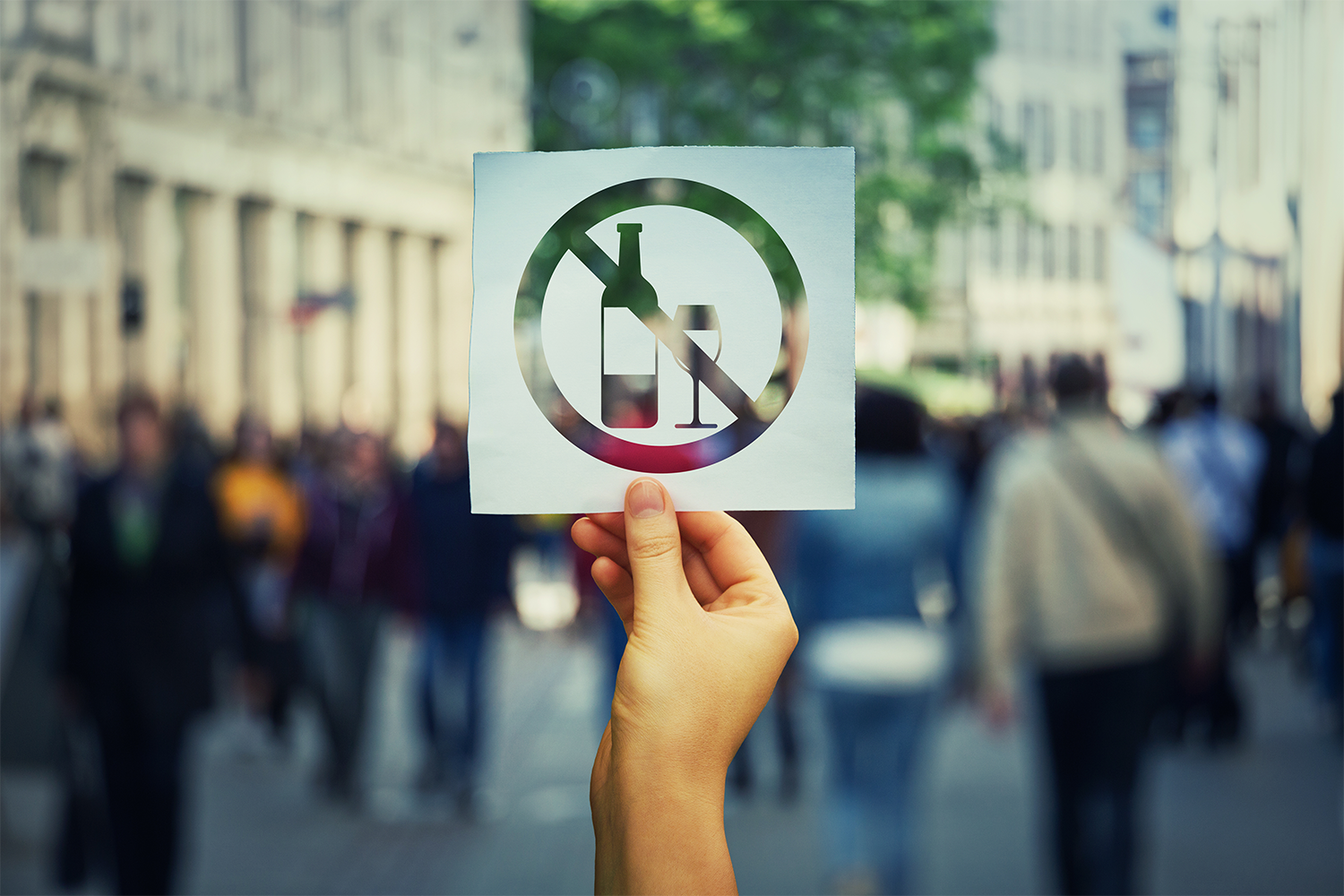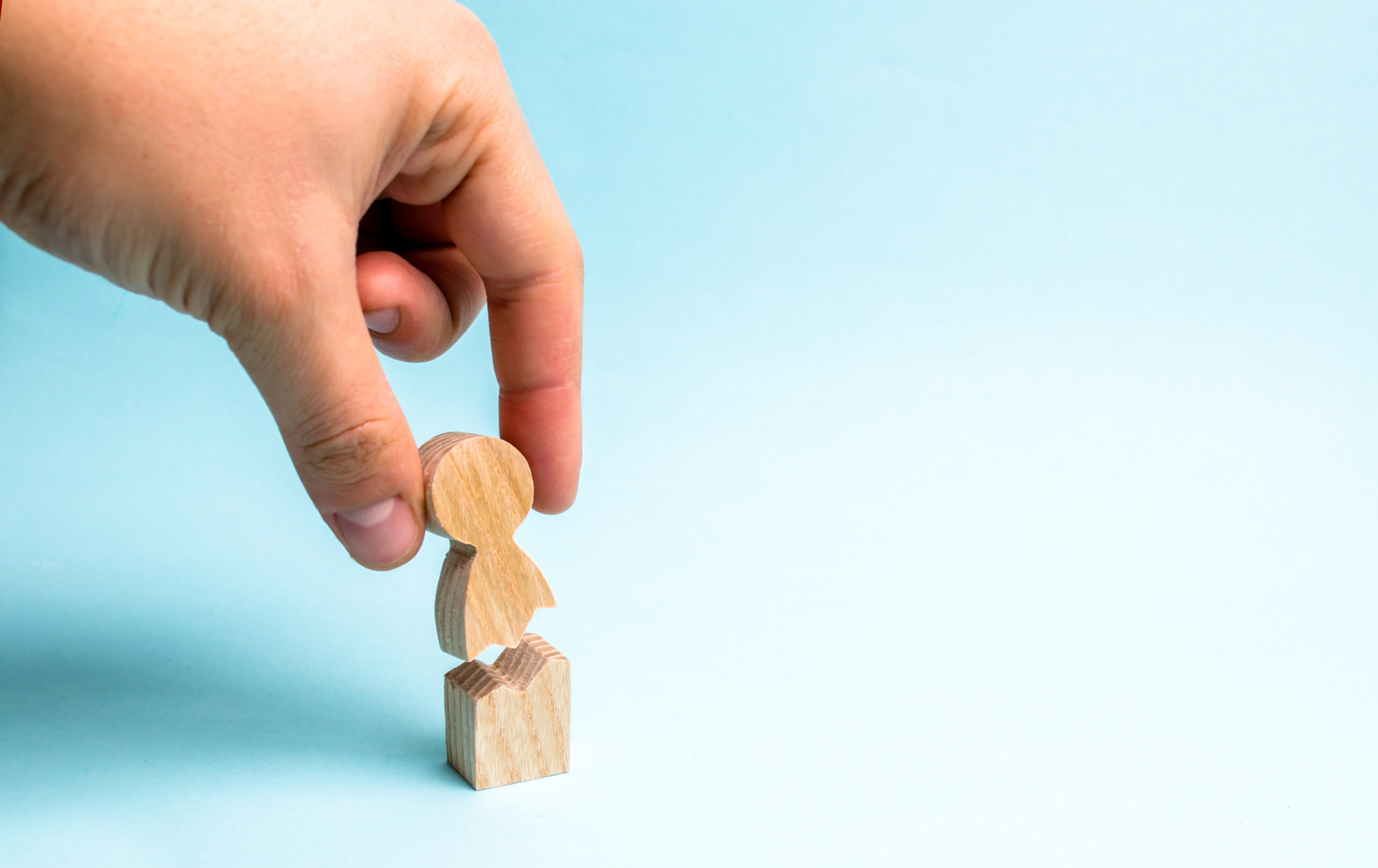Quitting drinking can be isolating. But with these 5 tips, you are sure to be headed toward the right track when it comes to recovery!
Continue readingWhat Is Cross Addiction?
Those who struggle with addiction might find themselves struggling with multiple addictions throughout their lifetime. It’s not uncommon for someone to struggle with more than one addiction, which is referred to as cross-addiction.
Not everyone who experiences cross-addiction goes through the same process. People become addicted to different things, and there is no real way to determine which addictions coincide with each other. However, some might seem to pair together more frequently, like oxycodone and alcohol.
Cross addiction can happen simultaneously or can be caused after you have gone through recovery for one addiction. People who struggle with addiction are more prone to developing another addiction later on because there is a tendency to experience addictive behaviors even after you’ve recovered.
It can be hard to realize that addiction is a life-long battle that doesn’t just end once you’ve stopped adhering to your addiction. Becoming sober and overcoming addiction is a process that can be difficult. Still, with the help of professionals, you can make it easier to persevere while you are in active recovery.
Cross addiction has also been referred to as Addiction Interaction Disorder or addiction transfer and does not just include addictions to drugs and alcohol. You can experience cross-addiction when you are addicted to behaviors like gambling, sex, or other compulsive behaviors. Often, those with addiction to drugs or alcohol will also experience addictive, compulsive behaviors that are linked and influence the other.
How Does Cross Addiction Occur?
Cross addiction can occur in many ways, and not everyone has the same path that leads them to these addictions.
It can be accidental or from a lack of understanding or due to unresolved mental health issues, but no matter how it happens, it can be devastating and hard to battle on your own. One addiction is debilitating enough, but having two that occur simultaneously makes things even more difficult when trying to get help because they can enable each other.
Accidental Cross Addiction From a Lack of Understanding
You might already have had an addiction to alcohol that you went through the recovery process for, but then you have to undergo surgery. You could get prescribed painkillers for the recovery process without thinking it will impact you because it’s not the same as alcohol, and you only have a limited supply.
The feeling you get from that drug might reinforce you to want more, eventually leading to another addiction. The feeling you get might be different from your experience with alcohol, but it can bring back similar memories and emotions.
You may not think you would be impacted, but that’s not usually the case. Often, when you struggle with one substance, other substances will be more dangerous to you because there is a higher likelihood that you could become addicted.
While it is hopeful thinking and probably with good intentions, once you’ve struggled with addiction just once in your life, it is something that will impact you for the remainder of your life.
Mental Health Issues and Cross Addiction
When you struggle with addiction to substances or compulsive behaviors, it can be linked to a co-occurring mental health disorder or what’s known as a dual diagnosis. This means that you have a substance use disorder and a mental health disorder.
These two can interact with each other and lead to other addictions or behaviors that could be harmful or dangerous to you. You might begin using drugs or alcohol if you have a history of depression or anxiety because they help you relax or escape your reality. You might use drugs like cocaine or heroin as your mental health worsens and becomes harder to control.
Signs and Warnings
If you think that someone you love is beginning to struggle with cross addictions, there are some ways that you can see what is unfolding. They might begin to act out more impulsively, especially in behaviors like gambling or eating.
They may also be showing signs of relapse from drugs and alcohol while their impulsive behaviors reveal themselves. It might be likely that the person undergoing this struggle is trying their best not to fall back into their addiction. Therefore, it turns to other behaviors that aren’t necessarily healthy for coping.
It’s always important to keep an eye out for any unusual behavior when dealing with someone who has struggled with substances in the past. Being able to spot inconsistencies or tension can help you identify when someone you love needs extra support.
Is Cross Addiction Common?
There aren’t yet specific rates for cross-addiction, but we know that it is not unusual for people to be using multiple substances or participating in multiple addictive habits.
The National Survey on Drug Use and Health (NSDUH) showed that in 2014, 21.5 million people over the age of 12 struggled with Substance Use Disorder (SUD), but even then, only 10 percent of all substance use disorders are diagnosed and treated. It can be very difficult to admit to yourself, let alone others, that you have an issue that you need help with.
The prevalence of addiction makes it hard to ignore, but many people try their best to as if that will somehow magically make it disappear. When one addiction goes untreated, others are likely to arise, as the substance you use starts to waiver, and it loses the ability to give you the feeling you desire.
You’ll often see cross addictions occur when two habits “go together.” Alcohol and tobacco can find themselves working as partners when it comes to addiction in one person, just like alcohol and gambling can. Everyone will experience cross-addiction differently, but no matter what they are struggling with, it deserves to be treated and taken seriously!
Treating and Avoiding Cross Addiction
Treating cross addictions might differ depending on where you are receiving your treatment services. In general, going through a 12-step program, undergoing therapy, receiving medically-assisted treatment, and participating in inpatient treatment can be extremely helpful when trying to treat cross-addiction.
Everyone experiences addiction differently, and when you are dealing with multiple addictions, you might require even more specific treatment. Recovery centers are meant to provide you with the individualized treatment needed to overcome your cross-addiction.
Sometimes avoiding cross-addiction is impossible, as it can happen accidentally. But if you are aware that you are someone with an addictive personality, who has had previous addictions or currently has one, there are ways for you to try to prevent other addictions from forming. Being educated on addiction can help you understand how cross addiction can occur.
You should be mindful of other substances or behaviors related to addiction if you have had an addiction before. This way, you can actively take note of how you might be encouraging another addiction to form and the ways that you can ensure that you remain safe and in control. If you struggle with addiction, the easiest way to avoid cross-addiction is to stay clear of addictive substances and behaviors. It is rather easy to fall into an addictive lifestyle if you’ve once found comfort in one before.
Living your life without any harmful distractions can limit your chances of developing another addiction. You can try to find a better outlet, one that is more creative or active, so that you can pull yourself away from any toxic cycles you find yourself drawn to. Being real with yourself will always benefit you. You know yourself best, so don’t let another addiction slow you down!
Getting Help At Soba Recovery Centers
Inpatient services can offer you the most when dealing with cross-addiction. There are multiple kinds of methods that recovery centers use to make sure that all needs are met, and at Soba Recovery Center, you’re sure to get the care you need. Personalized methods for care allow the team members at Soba to ensure you arrive in recovery safely.
We work with you to address your needs, so if you are someone who struggles with alcohol use disorder and gambling, we want to know. The more information we have about your needs, the better we can assist you!
If you think that Soba Recovery Center could be the place for you, reach out to a representative to talk about how we can help you.
Sources:
Prevalence Of The Addictions: A Problem Of The Majority Or The Minority? | NCBI
Concurrent Substance-Related Disorders And Mental Illness: The North American Experience | NCBI
Connection Between Trauma And Addiction
Most people who struggle with addiction also struggle with mental health disorders that have heavily impacted their drug use. If someone is experiencing emotional or mental distress, they might turn to drugs to cope, stemming from trauma. Trauma and substance use often go hand-in-hand, as trauma informs how you handle emotional and mental stress.
If you have experienced more wrongdoings and trauma throughout your life, there is a chance that you didn’t learn how to properly cope with adverse events as a child. These events can lead to a person self-medicating, which is when they attempt to feel better through substances. Most substances allow a person to “get away” from the reality of their situations, which for some is how they learned to cope with emotions.
It’s essential to recognize how trauma and addiction work together so that you can offer proper treatment to those in need.
What Is Addiction?
Substance use disorder (SUD) is what an addiction stems from. Abusing substances daily, even though they are causing rifts in your life, is what classifies an addiction, especially when you cannot control your usage of it. A person’s brain structure will be altered when they have an addiction, causing intense cravings, abnormal movements, and personality changes.
You become somewhat obsessed with the substance you are using, unable to stop yourself from using it, and not function without it. Your brain and body will adjust to the substance and accept it as normal so that when you go without it, you will begin to feel ill. Addiction is a vicious disease that controls your behaviors and limits your ability to succeed. Those who struggle with addiction often need support as it’s challenging to recover from substance use disorder alone.
Many things can lead to addiction, making it more likely that you suffer from it. Addictive personality behaviors can run in families, so if you have a loved one who struggles with substance use disorder, you might be at a higher risk of abusing substances you use. Some people become addicted to substances after being prescribed medications like opioids for pain. There doesn’t have to be trauma to have substance use disorder, but it’s often found linked together, which is important to know when understanding you or a loved one’s addiction.
Let’s Talk About Trauma
When we think of trauma, we often think about a really horrific, gory, close-to-death experience that someone might have. This can indeed be an example of trauma, but trauma doesn’t have to be so dramatic for it to have a long-lasting negative effect on a person.
Trauma is an emotional response to a horrific event. Different individuals will have a different definition of what “horrific” is. Some people will experience shock, denial, and confusion immediately after the event and might experience panic attacks. In addition, they may experience flashbacks, emotional distress, headaches, or insomnia. You can experience a traumatic event at any point in your life and then develop different issues because of it. No two people will experience the same trauma as well as have the same reaction to it.
Some ways you can develop trauma are:
- Domestic abuse
- Car accidents
- Natural disasters
- Terrorist attacks
- Verbal abuse
- Parental neglect
- Chronic disease
People learn to cope in different ways, and not all of them are healthy. Finding comfort in substances is often one method of coping that works for those who are dealing with a lot of emotional distress. At least 62% of people have experienced a traumatic childhood event. Still, those who have trauma after trauma piled on top of them are more likely to develop a substance use disorder as there is never any moment for peace to reestablish and recuperate from the last event.
Addiction and Trauma Working Together
Those that have experienced lots of trauma throughout their lives often experience more emotional distress that they don’t know how to deal with. These emotions can be overwhelming and lead to different mental disorders that require treatment but can be hard to get. When you experience trauma, how the situation is handled afterward can also impact the way that you learn to cope. Finding a way to feel pleasure when much of your experience is related to pain and trauma can relieve and allow people to escape their reality.
Some people develop post-traumatic stress disorder (PTSD) as a result of these horrific events. People with PTSD experience flashbacks, panic attacks, and other physical symptoms when reminded of their trauma. It’s believed that if you have PTSD, you are three times as likely to abuse substances than someone without it.
This is why many people who have experienced trauma end up misusing substances. The momentary pleasure that using drugs has on people is much greater than what they are used to feeling. For some people, using substances is a way to forget about the trauma they have experienced, and for others, it’s to achieve a certain level of happiness that they aren’t used to. No matter why someone uses it and no matter what they’ve gone through, they deserve to get better and receive help for their disorders.
How To Treat Addiction and Trauma
When it comes to treating trauma-related addiction, you cannot treat one without the other. The two are working together, constantly encouraging the other. Professional addiction treatment is recommended for those struggling with trauma and substance use disorder because they need to be treated together. There needs to be a more personalized approach to the treatment.
For you to work on your substance use disorder, you must heal from past traumas. This doesn’t mean forgetting they ever happened and moving on from them, but instead finding ways to cope with their reality. By going through cognitive and behavioral therapy programs, you can begin to unpack the traumas in your life and figure out how to make changes. Once you have dived into your past trauma and understood them better, with the help of professionals, you can look into the intersection of addiction.
Everyone experiences trauma and is impacted by substance use disorder differently. Finding a recovery center that works with you can be difficult. Soba Recovery can help make an individualized approach to treatment, offers detoxification methods, group therapy sessions, and provides unconditional support that will genuinely benefit you in the long run. We have everything you need to be successful in dealing with your trauma and your addiction.
Soba Recovery Centers
Soba Recovery Centers are located in both Mesa, Arizona, and San Antonio, Texas. We offer detoxification, inpatient, outpatient, sober living programs to people dealing with substance use disorder. We want to pinpoint exactly what impacts your addiction so that we can efficiently treat you.
We offer group therapy, individual therapy, cognitive behavioral therapy, and physical activities like yoga and meditation to help treat your individual needs. At Soba Recovery, there is something for everyone. Your trauma should not hold back on progress to be made on your addiction, and they should be dealt with at the same time.
Consider reaching out to a representative to talk about how Soba could be right for you!
Sources:
What Is Addiction? | American Psychiatric Association
Trauma and Shock | American Psychological Association
What is Trauma? | Trauma-Informed Care Implementation Resource Center
How to Help Your Addicted Spouse
Your love for your spouse does not dissipate when they are dealing with addiction. Substance Use Disorder (SUD) can affect anybody and those who are struggling with SUD need support from the ones that love them most. You may not understand what your spouse is going through when they are dealing with addiction, but there are ways that you can help them and keep yourself safe at the same time.
Signs of Substance Use Disorder
Substance Use Disorder is a disease that affects the brain and causes the inability to control the use of substances, such as alcohol and opioids. There are signs that can show in your spouse who is dealing with substance use disorder. The symptoms of substance use disorder can be grouped into four categories:
- Lack of Control: Seeing your partner go through strong urges and cravings with the inability to cut back on using the substance.
- Social Problems: When your partner is no longer participating how they normally would in public settings. They can end up letting the substance use interfere with their work, home, and social life.
- Riskiness: Your partner begins using substances in situations that are known to be dangerous, for example, drefusing to get out of a car when they are under the influence.
- Drug Effects: Your partner may begin to need more of the substance to get the same effects, meaning that their tolerance to the substance goes up. Your spouse might also begin to show symptoms of withdrawals during periods where they have not used for more time than they are used to. Withdrawal symptoms can start within hours of not having had the substance.
There are other signs that your spouse might be dealing with addiction if:
- Your spouse breaks promises to not drink when out with friends;
- There is extensive partying that does not involve you;
- Money has been going missing more frequently;
- Your spouse has not been able to hold down a job; or
- They are putting your children’s life at risk with extreme behaviors.
If you believe that your spouse might be dealing with addiction, there are ways to help and be supportive during this stressful time. There are also ways to protect yourself and your family from the harm that substance use disorder can bring. Again, loving your spouse through the struggle they are having is essential in their recovery, but you can love your spouse without enabling their addiction.
Dealing With An Addicted Spouse
You might be wondering what the first steps are to beginning to deal with your spouse’s substance use. It’s a scary conversation to have, especially because many people with SUD are in denial about their addiction, and don’t trust that they can change their lives around.
Some spouses might be defensive and reject any solutions you provide at the beginning, but by showing that you are there for them, you can help by showing them they are not alone. There are a few things you should do while dealing with your spouse’s addiction:
- Learn as much as you can about substance use disorder and addiction. Knowing the signs and facts can help you support your spouse better.
- Reach out to friends and family that you trust to support you. You don’t need to be alone when caring for your spouse! If you aren’t comfortable reaching out to friends and family quite yet, reaching out to your family doctor is the easiest way for confidential support and help.
- Take care of yourself and children (if you have them). Being with someone who is suffering from addiction can be exhausting, and it’s no help to them if you are neglecting taking care of yourself.
It’s important to know that you are not alone and that there are plenty of people who are out there that want to help you while you help your spouse.
Ways to Help
If you are reading this article, then you are already helping your spouse. You care enough to do the research and are willing to put in the work to help get your spouse back to the person you fell in love with, someone who is healthy, happy, and more importantly, no longer harming themselves and the ones they love. Here are a few ways you can help your spouse during their recovery:
- One of the first steps is to help to get them into inpatient or outpatient treatment. Depending on your spouse’s substance use, being an inpatient may be more beneficial by taking them out of the environment that they aren’t thriving in and putting them somewhere where the focus is on recovery.
- Support your spouse by attending recovery programs with them, such as a 12-Step Program, after they come out of their detox program. Showing your support by showing up to these meetings help to let your spouse know that you believe in them, and it also holds them to some sort of accountability. They can’t skip out on going if you are there with them.
- Learn about enabling, and then make sure you don’t do it. Enabling someone with substance use disorder looks like making excuses for their behaviors or lying about their behaviour to others. You aren’t helping them by allowing them to neglect their responsibilities, and you definitely aren’t helping yourself by allowing them to continue to use.
Most of the substance use recovery process is on the person struggling with it, but it is extremely helpful when your spouse is supportive.
Protecting Yourself
It’s essential that when helping your spouse with substance use disorder, you are still putting yourself first. Your health, mental stability, and safety should be maintained as your first concern. You can’t help your spouse if you find that you are losing yourself in the process.
If your spouse becomes violent with you when you bring up their substance use disorder, or if they have a pattern of being violent while under the influence, then you need to recognize that your safety is more important than you staying in that situation. If there are children involved, you should also protect the children from experiencing the effects of substance use.
If you find that the substance use your partner is experiencing is beginning to rub off on you, where you are using drugs or alcohol more to fit in and to ignore the damage and destruction that is being done, please seek out professional help. Confiding in family and friends can also help to ensure that you are safe. Having a place to go if you need to leave your spouse for periods of time is critical, and your loved ones want you to be safe.
Bringing Your Spouse to SOBA Recovery Centers
Here at Soba Recovery, we know that there’s no one-size-fits-all treatment for addiction. That’s why we tailor all of our programs to meet specific needs. We can help your spouse achieve the freedom they’ve always wanted. We offer both inpatient and outpatient services to find what’s best for your spouse and your family.
Reach out to a member of our team today and ask about our individualized treatment plans. Take back your life with a rehabilitation center that truly cares about your recovery needs.
Sources:
Drug Addiction (Substance Use Disorder) | Mayo Clinic
The Role of Mindfulness In Addiction Recovery
Recovering from addiction can be a difficult, frustrating, and exhausting process. But mindfulness can help you find and maintain peace through the recovery process.
Continue readingThe Connection Between Impulsive Behavior and Addiction
Impulsive behavior and addiction go hand in hand. Acting impulsively can keep you trapped in a cycle of addiction while using drugs and alcohol can make you act more impulsively.
Continue readingCan Art and Music Therapy Help In Addiction Recovery?
By helping you regulate emotions, resolve personal challenges, avoid cravings, and improve brain functionality, art and music therapy can help you achieve and maintain long-term recovery.
Continue readingWhat Are The Most Effective Treatment Modalities for Substance Abuse?
We’ve put together this quick guide detailing today’s most effective treatment modalities for substance abuse. Knowing the most effective ways to treat addiction can help you choose the right recovery program for yourself or a loved one.
Continue readingCan Alcohol Make Depression Worse?
Instead of actually making people with depression feel better, alcohol can actually make them feel worse as the substance starts to affect their physical, emotional, social, and mental health.
Continue readingWhy People Self-Medicate and How To Stop
No matter how helpful self-medication might seem, using drugs and alcohol as a coping mechanism is a dangerous and harmful habit.
Continue reading










